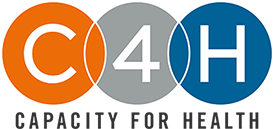You’ve likely heard the saying that an organization is only as strong as its leadership. While for-profit organizations have taken this advice to heart, it holds true for nonprofits as well. Unfortunately, when budgets are tight, spending on human capital isn’t often a priority.
The business world has embraced the value of coaching as an essential leadership development practice. Not so in the nonprofit world. Studies indicate that the nonprofit sector tends to spend two to four times less on leadership development than does the private sector. However, investing in nonprofit training and coaching offers a number of benefits, from decreased employee turnover to increased productivity. Nonprofit training organizations that offer coaching can help take your organization to the next level.
Read on to learn how coaching can help nonprofits, and the types of coaching to consider.
The Importance of Training
While each nonprofit operates within a unique context, most face a handful of similar challenges. These tend to include working within limited budgets, effective fundraising, and managing volunteer and employee churn. Coaching and training for nonprofits can help mitigate these issues.
Coaching may be especially appropriate at inflection points in an organization’s timeline, such as executive transitions, development of new strategic plans, changing missions, or a program expansion.
Nonprofit training is well worth the investment; multiple studies indicate that investing in human capital and professional development results in:
- Greater mission impact
- Increased revenue
- Decreased costs
- Improved stability
- A high return on investment
An example is detailed in a case study from Boys and Girls Clubs of America (BGCA). In response to a shortage of leadership capabilities, the organization invested in a training program. The training targeted the specific leadership aspects BGCA found contributed the most to performance. At the program’s conclusion, BGCA assessed the training’s impact and found that the training program generated returns at more than four times its cost, resulting in increased revenues and improved staff performance.
Another study found that 13 of 14 nonprofits that participated in a leadership award program increased their budgets by an average of 64 percent. Further, 93 percent of these participant organizations met or surpassed their mission-driven goals.
Types Of Training for Nonprofits
For some nonprofits, basic training that encompasses all organizational aspects is appropriate. More often, though, organizations tend to struggle in specific areas. These may include:
- Finance
- Human resources
- Fundraising
- Grant writing
- Marketing
- Volunteer engagement
- Board governance
In such cases, a coaching relationship allows for nonprofit training organizations to target specific challenge areas. Whether one-on-one or in a group setting, coaches can tailor guidance to address needs, whether that’s developing processes to boost results, or managing staff, volunteers and boards.
In some cases, a nonprofit may best benefit from objective-based training, answering specific questions such as “how do we increase the number of communities our organization serves while using limited resources and without stretching ourselves too thin?” One-on-one coaching can identify personalized strategies, develop training options and deliver a follow-up. Individualized coaching allows you to address specific organizational challenges and identify opportunities.
You can also find trainings for nonprofits that work within certain sectors. For instance, Capacity For Health provides training, capacity building, technical assistance, and coaching to nonprofits that work on HIV/AIDS-related healthcare. No matter what the scenario, a training or coaching option to address it likely exists.
Since 1993, Capacity for Health has been helping nonprofits build their capacity. Contact us to learn how our training for nonprofits can help your organization grow.




